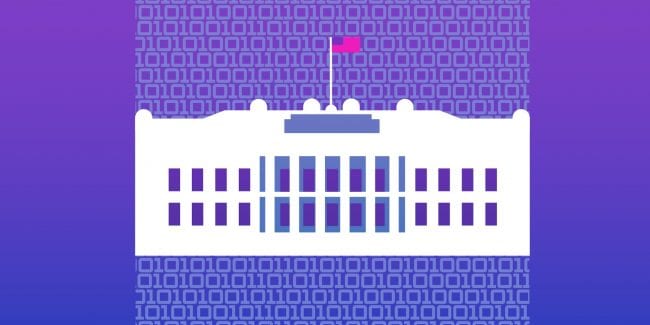Trump Signs Internet Privacy Repeal
It’s official. Trump has signed the Internet Privacy Repeal on Monday, April 3rd, 2017. As a result, American Internet service providers, including Verizon, Comcast, and AT&T, are no longer required to obtain permission from customers before sharing personal data including their browsing history. The new law had passed the House and Senate last week, as Republicans voted to overturn the regulations previously passed by the Obama administrations.

Trump Signs Internet Privacy Repeal
Americans Wave Good-Bye to Online Privacy
In total, Trump has signed 10 bills overturning Obama-era regulations, including the Internet privacy rule. Later this year, Republicans are also planning on overturning net neutrality provisions that re-classified ISPs and treated them like a public utility. Such move is expected to spark an even bigger uproar.
Supporters of the Internet privacy repeal argued the rules instated by the Obama administration were unfair because companies like Google and Facebook are not required to get explicit permission from their users before collecting their private data.
While an Internet user can simply choose note to use such websites, he/she has no such privilege when it comes to Internet service providers, given that all of them can now legally collect and sell their users’ private data without consent.
Read: How to Block Your ISP from Tracking You.
How Does All This Affect Me?
If you are a resident of the United States of American, your Internet service provider can now legally collect and sell the following private data without your approval.
- Geo-location data
- Financial and health information
- Children’s information
- Social Security numbers
- Web browsing history
- App usage history
- Content of communications
- Timestamp of communications
Read: How to Protect Your Browsing History from your ISP
How to Protect Your Private Data
In order to prevent your ISP from collecting and selling your private data, including your browsing history, you need to use VPN. A Virtual Private Network reroutes all your Internet traffic through an encrypted tunnel, scrambling all your private data in the process. Therefore, your ISP cannot spy on what you are doing online. VPN even hides your IP address and protects your identity online.
Read: Best VPN Services for Anonymous Browsing
Best VPN To Hide Your Browsing History
Not all VPN services are trustworthy. Some of them keep logs of your browsing activities while others use outdated protocols. Here is a set of questions you should ask yourself before signing up with a VPN.
- Is my VPN using up-to-date protocols?
- Does my VPN have good reputation and expertise in the field of privacy?
- Are the ToS (terms of services) easy to comprehend?
- What does the VPN protect me against? it?
- Is the VPN service honest about its disclosures?
- Does my VPN keep any logs of my browsing activities?
Generally speaking, VPN services that claim to be free sell their users’ data to third parties. So you’re better off without them. Using a premium VPN that respects your online privacy comes at a cost. Here’s a list of the best VPN providers you can use to hide your browsing activities from your ISP.

- Best for streaming and privacy
- High speed servers in 160 VPN locations
- Works for Netflix, BBC iPlayer, Amazon Prime Video, and Hulu
- 24/7/ live chat support
- 3 extra months free on annual plan

- UltraHD streaming
- Free Smart DNS proxy
- Unblocks all major streaming services
- Limited Time 72% Discount

- Unlimited VPN connections
- Over 1000 servers
- Ad-blocking feature available
- User-friendly application
- Exclusive Smart VPN feature
- Standalone Smart DNS subscription available
- Extra security features
- Extensions for Firefox and Chrome
- Split-tunneling available
Trump Signs Internet Privacy Repeal – What’s Next?
Little by little, our privacy rights are being taken away. What’s ironic is that politicians want you to believe that these new rules have your best interest at heart. How long before even using anonymizers like VPN also becomes illegal? Only God knows..









